 W
WBoris Carmeli was a Polish operatic basso profondo known for his "fervent rich hued tones" and extensive repertory of more than 70 operas and 60 oratorios. During his long career, he appeared regularly at La Scala in Milan and other major opera houses internationally. In addition to the classical bass repertoire, he performed contemporary music including major works by Krzysztof Penderecki and Karlheinz Stockhausen. He appeared at international music festivals, on Italian television, and in many opera films.
 W
WThe people on this list are or were survivors of Nazi Germany's attempt to exterminate the Jews in Europe before and during World War II. A state-enforced persecution of Jews in Nazi-controlled Europe lasted from the introduction of the Nuremberg Laws in 1935 to Hitler's defeat in 1945. Although there were many victims of the Holocaust, the International Commission on Holocaust Era Insurance Claims (ICHEIC) defines a Holocaust survivor as, "Any Jew who lived for any period of time in a country that was ruled by the Nazis or their allies." The United States Holocaust Museum (USHMM) gives a broader definition: "The Museum honors as a survivor any person who was displaced, persecuted, and/or discriminated against by the racial, religious, ethnic, social, and/or political policies of the Nazis and their allies between 1933 and 1945. In addition to former inmates of concentration camps and ghettos, this includes refugees and people in hiding." Most notably, as well as Jews, this includes Poles, Romani people, Jehovah's Witnesses and those who were persecuted for political reasons such as Communists, those who were persecuted for religious reasons, and homosexuals and those of other sexual orientations. It includes those who were actually in hiding in Nazi-occupied countries. The latter includes Hidden Children, who were hidden to escape the Nazis.
 W
WMichael Nicholas Salvatore Bongiorno was an Italian-American television host. After a few experiences in the US, he started working on Italian TV in the 1950s and was considered to be the most popular host in Italy. He was also known by the nickname il Re del Quiz, and the peculiarity of starting all his shows with his trademark greeting: Allegria!.
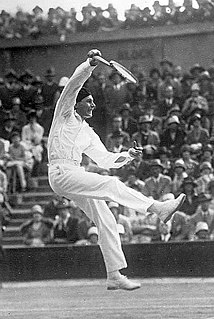 W
WJean Laurent Robert Borotra was a French tennis champion. He was one of the famous "Four Musketeers" from his country who dominated tennis in the late 1920s and early 1930s. Borotra was imprisoned in Itter Castle during the latter years of World War II and subsequently fought in the Battle for Castle Itter.
 W
WWilli Bredel was a German writer and president of the DDR Academy of Arts, Berlin. Born in Hamburg, he was a pioneer of socialist realist literature.
 W
WAbraham ('Appie') Bueno de Mesquita, commonly known under his stage name Bueno de Mesquita was a Dutch comedian, actor and stage artist, well known for his ability to make funny faces.
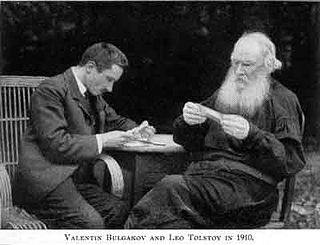 W
WValentin Fyodorovich Bulgakov was the last secretary of Leo Tolstoy and his biographer. He was director of a number of literary museums and was engaged in Tolstoyan, pacifist activities. He was imprisoned by the Tsarist regime and in an Nazi internment camp. During the final 20 years of his life he was head of the Yasnaya Polyana museum.
 W
WHelmut Dantine was an Austrian-American actor who often played Nazis in thriller films of the 1940s. His best-known performances are perhaps the German pilot in Mrs. Miniver and the desperate refugee in Casablanca, who tries gambling to obtain travel visa money for himself and his wife. As his acting career waned, he turned to producing.
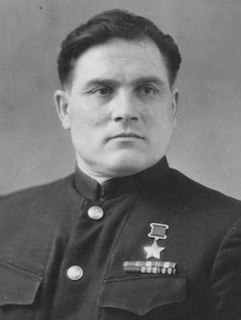 W
WMikhail Petrovich Devyataev was a Soviet fighter pilot known for his incredible escape from a Nazi concentration camp on the island of Usedom, in the Baltic Sea.
 W
WHans-Karl Freiherr von Esebeck was a German general who commanded the 15th Panzer Division in the Afrika Korps.
 W
WMax Fechner was a German politician who served as Minister of Justice of East Germany from 1949 to 1953
 W
WLeo Haas was a German painter, graphic artist, draughtsman and caricaturist.
 W
WHaïm Vidal Séphiha,, was a linguist and professor emeritus at several European universities, notably the Sorbonne. He was one of the first people to study Judaeo-Spanish, today spoken by a number of Sephardi Jews, and has contributed to the defense and promotion of the language's continued use.
 W
WJohan Bernhard Hjort was a Norwegian supreme court lawyer. Having joined the law firm of Harald Nørregaard in 1932, he continued the firm after World War II as Advokatfirmaet Hjort, which today is one of Norway's leading law firms. Hjort was also noted for his involvement with the fascist party, Nasjonal Samling, in the 1930s, but left the party in 1937 and became an active member of the anti-Nazi resistance during World War II. He was imprisoned by the Nazis and is credited with saving the lives of many prisoners through his involvement with the White Buses. After World War II, he rose to become one of Norway's preeminent lawyers, and was noted for his defence of gay rights and controversial artists, as chairman of the Riksmålsforbundet language society, and as a liberal public figure.
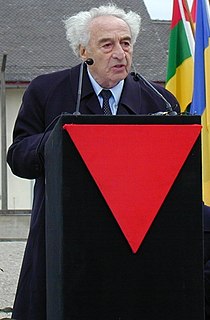 W
WInternational concentration camp committees are organizations composed of former inmates of the various Nazi concentration camps, formed at various times, primarily after the Second World War. Although most survivors have since died and those who are still alive are generally octogenarians, the committees are still active.
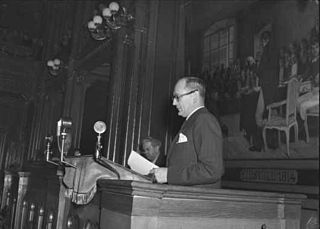 W
WHalvard Manthey Lange was a Norwegian politician and diplomat, who served as the Minister of Foreign Affairs from 1946-1963 and again from 1963-1965. He was also the longest serving Foreign Minister to date, having served a total of 19 years.
 W
WHelge Andreas Løvland was a Norwegian track and field athlete. He won the gold medal in the decathlon at the 1920 Olympics. Løvland was awarded the Egebergs Ærespris in 1919. Representing the club IF Ørnulf, he died in Oslo in 1984.
 W
WMieczysław Jan Ireneusz Lubelski was a Polish monumental sculptor and ceramist.
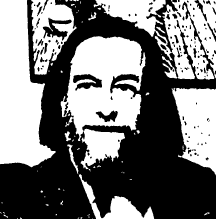 W
WJohn Neulinger was a noted German-American psychologist and Professor Emeritus of psychology at City College of New York. Neulinger is best known for contributing a social psychological theory of leisure to the field of leisure studies. Neulinger's theory of leisure is defined by a psychological state of mind that requires two criteria for leisure: perceived freedom and intrinsic motivation. In Neulinger's theory, individuals can be said to be in a state of leisure if they simply perceive that they have the freedom to choose activities and are motivated by an activity for its own sake, not just for its consequences. Neulinger first popularized his ideas in the 1974 book, The Psychology of Leisure.
 W
WOldřich Nový was a Czech film and theatre actor, director, composer, dramaturg and singer. He is considered one of the greatest actors of the Czech cinema in the first half of the 20th century.
 W
WReed Edwin Peggram, also known as Edwin Reed was an American scholar, translator, and teacher of linguistics, and was also known for his survival of Nazi imprisonment during World War II. He was born and raised in the Dorchester neighborhood of Boston, Massachusetts and died there at the age of 67.
Adam Remmele was a German social democratic politician in Baden. He also served in the Reichstag.
 W
WJohannes Aleidis (Johan) Ringers was a Dutch politician.
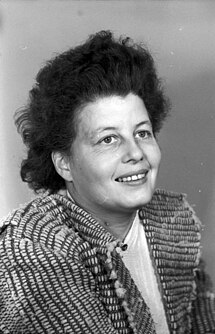 W
WIlse Rodenberg was a Hamburg typist who became an actress and, later, an influential East German theatre director. She combined this with a political career, sitting as a member of the East German parliament ("Volkskammer") for four decades between 1950 and 1990. She was a member not of the ruling SED (party) but of the National Democratic Party of Germany , one of the smaller Block Parties which contributed a semblance of pluralism to the country's political structure.
 W
WRudolf Sarközi was the chairman of the Austrian Romani association Kulturverein.
 W
WOndřej Sekora was a Czech painter, illustrator, writer, journalist and entomologist. He is known mainly as an author of children books. Sekora was also one of the first propagators of rugby in Czechoslovakia.
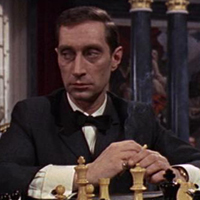 W
WVladek Sheybal was a Polish character actor, singer and director of both television and stage productions. He was well known for his portrayal of the chess grandmaster Kronsteen in the James Bond film From Russia with Love (1963), a role for which he had been personally recommended by his friend Sean Connery, and as Otto Leipzig in Smiley's People (1982).
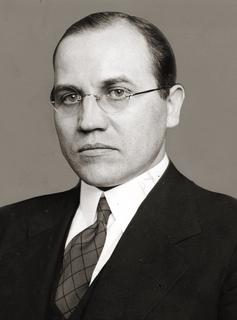 W
WKazys Škirpa was a Lithuanian military officer and diplomat. He is best known as the founder of the Lithuanian Activist Front (LAF) and his involvement in the attempt to establish Lithuanian independence in June 1941.
 W
WLeonid (Les) Stepanovych Tanyuk was a Ukrainian theatre and film director, Soviet dissident and after 1991's Ukrainian independence, a multi-term member of the Ukrainian parliament.
 W
WSandor Vandor is a Holocaust survivor of Hungarian nationality who was incarcerated at the Sankt Anna am Aigen Labour Camp in Austria. His wife Anna along with his mother and sister were sent to Auschwitz on the Hungarian transports in 1944 where his mother was killed in the gas chambers on arrival. In a 2018 interview with researcher Hannah Wilson from the Auschwitz Study Group, Sandor gave his testimony explaining how he survived the camp with the help of the people of Sankt Anna am Aigen.
 W
WPavlo Arhypovych Zahrebelnyi or Zagrebelnyi was a Ukrainian novelist.
 W
WKazimierz Zarankiewicz was a Polish mathematician, interested primarily in topology.
 W
WZhu Min, originally Zhu Minshu (朱敏书) and also known as He Feifei (贺飞飞), was a professor of Russian at Beijing Normal University. She was the only daughter of the Chinese revolutionary Zhu De.